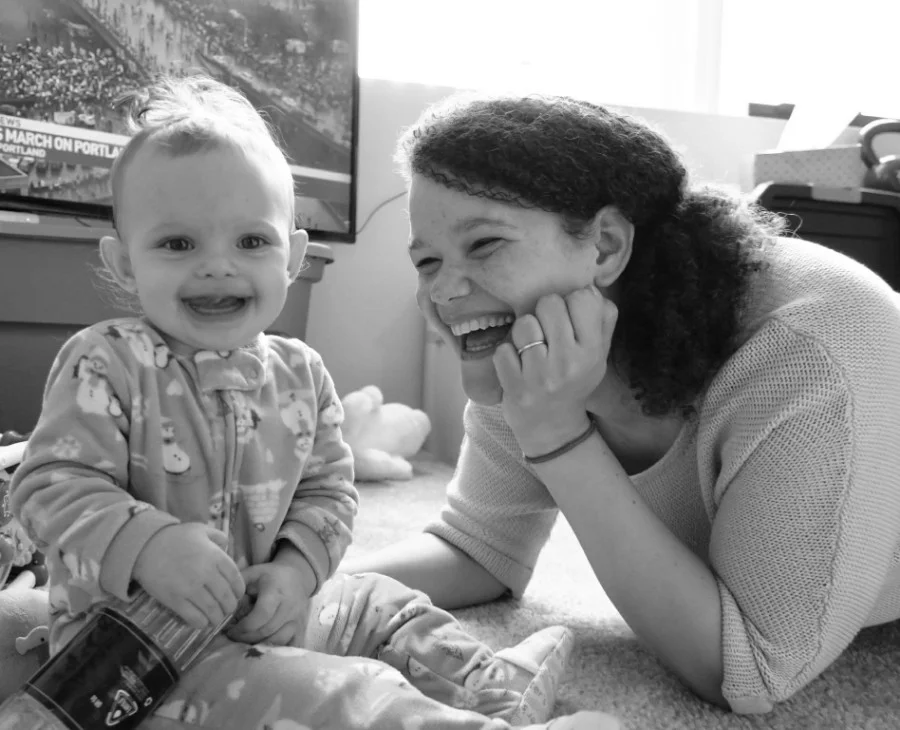Advice to My Past Self: First Year on the Tenure Track
January 2017: Ellie at 8 months, shortly after her first women’s march
Just a quick note before you head into the blog post. Are you an academic who is trying to figure out your long term planning processes? My planning course, plan(it)*, can help support you as you figure that out. Check out the link for more info.
Last week I shared what my first year on the tenure track looked like. This week I’m sharing some thoughts about what helped during the first year.
Kind of like advice I’d give to my past self. In no particular order, here are some of the main things I’d remind myself of on a daily basis if I had to do it all over again.
Remember, it is a j.o.b. And it’s not worth sacrificing your health/mental health in order to succeed.
Family first.
This was advice I was given by a senior colleague shortly after I started and it’s something I come back to when I start feeling guilty about not doing more for the job.
Build a support network, whatever that looks like for you.
Use your new network (e.g., your new colleagues and/or new neighbors) to help you get settled, even if you don't know people that well.
People love to help with things like finding housing or health care professionals or day care or whatever else you might need. These also serve as great conversation starters.
When you’re setting goals for the year, don’t forget to account for all of the things that come along with moving
E.g., finding doctors, finding housing, finding child care, figuring out where the grocery store is, making friends, etc. All of these things take a significant amount of time and mental energy.
If familiar faces are able to come visit you, encourage them to do so!
Seeing people we knew well in our new city was helpful in making it feel more like home.
In general, go easy on yourself, big transitions are hard.
You don’t have to do it all in one year.
Schedule lunch, coffee, a drink, a walk, or whatever, with other junior faculty (and senior faculty too) and build genuine relationships with them.
Schedule lunch, coffee, a drink, a walk, or whatever, with potential collaborators (people who have similar/related interests) and build genuine relationships with them.
If someone isn’t interested in building a relationship/partnership with you.... it’s not about you!
Fun fact: During my first year, I attended a meeting for early childhood researchers and connected with multiple people, one of whom I ended up writing a letter of intent with, twice (awesome!). The other person ghosted me… we had a mutual connection, so I figured that was my “in.” I asked about setting up a time to chat to talk about potential future papers since we had similar interests (perhaps I came on a bit too strong). We set up a time to talk, I gave her a call at our agreed upon time and got no answer (or follow up saying let’s reschedule or I’m not interested). At the time, I was a little annoyed, but in reality, there are a million and one reasons why she didn’t answer or reach out, most of which likely had nothing to do with me. And in my own life, I’m definitely guilty of saying yes and then realizing I’ve got no more room on my plate. If something falls through, don’t take it personally. Everyone’s got a lot going on and it can be difficult to make space, especially for someone new. Move on to the next person until you find people who are interested in you.
On a related note, collaborate!
I know different fields operate differently, but in my field (social work) collaboration is SO helpful. I wouldn’t be able to do 75% of the things I do without it.
Let senior colleagues know what you’re working on and/or are interested in working on.
They they tend to be well connected and can help set you up with potential collaborators and/or mentors.
Maintain connections with past collaborators/mentors (if they’re good relationships!).
They’re super helpful for keeping momentum going with your research and also helpful when you have random questions about departmental dynamics at your new institution that you don’t want to ask your new colleagues.
Course prep takes a lot of time, so make sure to account for it in your schedule.
I know there are lots of people out there that give super specific recommendations about exactly how much time you “should” be spending preparing for courses. And to some extent, I get it, it’s helpful to set limits around it because it’s easy to go down the rabbit hole. However, these recommendations always felt like they were geared towards seasoned teachers (or people who truly enjoy getting up in front of a room full of people and winging it… which is 100% not me). I never felt that their recommendations fit people who were brand new or teaching a class for the first time or just super uncomfortable in the classroom. So if you read teaching advice and feel like there’s no way you can actually do course prep in that short amount of time, you might be right. You know yourself best!
In general, when you’re estimating how long things will take, add extra time to everything.
Good advice for any point in time, but especially the first year when everything is brand new.
Use a calendar and put everything on it.
Doesn’t matter what kind, just pick one that works for you. I’ve been a google calendar user for a long time.
Reflect, reflect, reflect!
Each week, take time to think about what’s working, what’s not working, and how you can make changes. And don’t just write, also review your writing on a regular basis. You’ll start to notice patterns that give you additional insights into how you work best.

